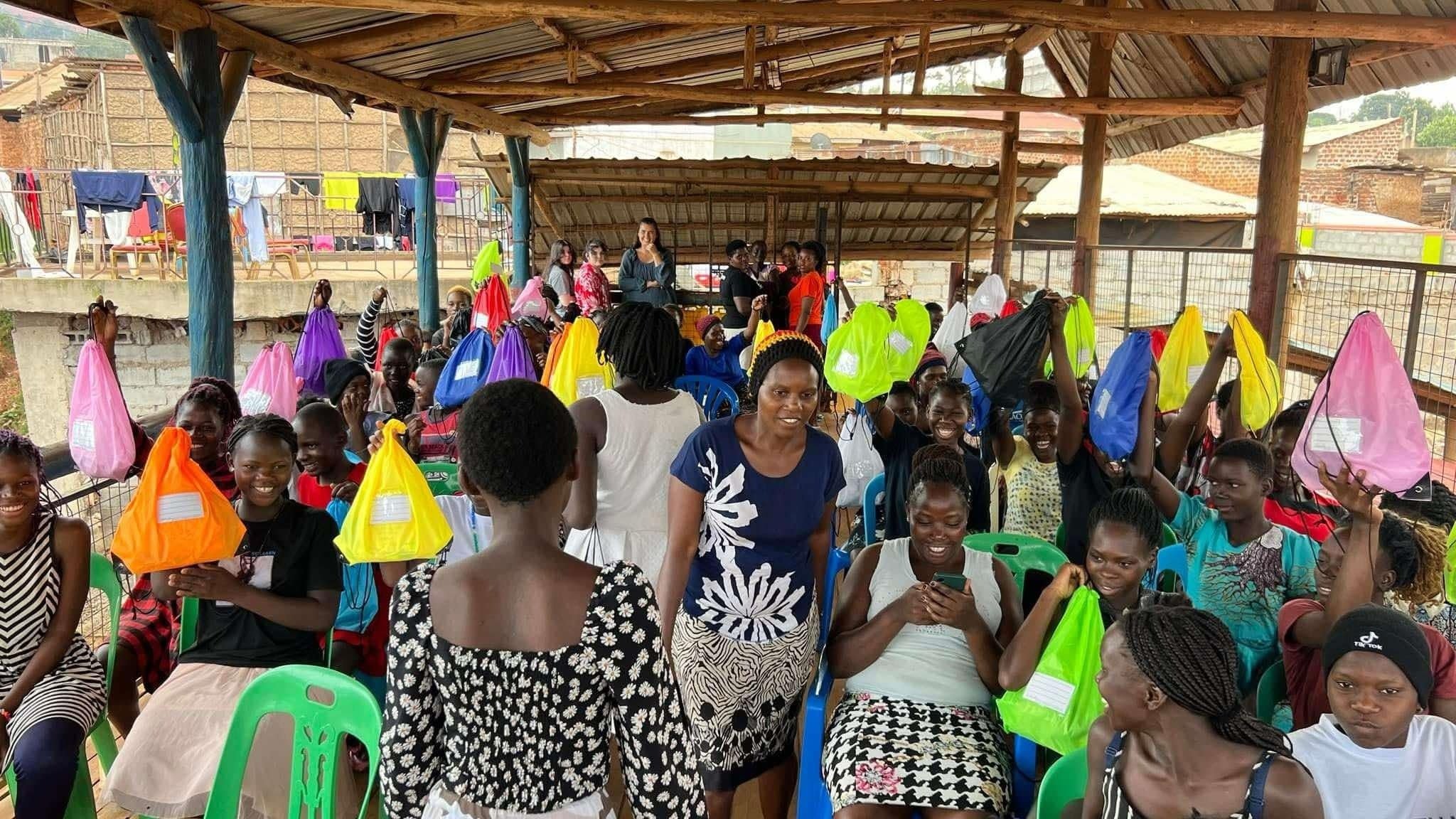
Period Poverty and Wildflowers
The Wildflowers program is in the capital and largest city of Uganda, Kampala, located in East Africa. With almost 1.8 million residents, it serves as the country's political, economic, and cultural hub. The city itself is seated on the shores of Lake Victoria, the second-largest freshwater lake in the world, making fishing a natural source for food and work. While Kampala is the bustling, busy hub of Uganda, it is also an incredibly beautiful place to live. People here live in close community with one another.
Slums are densely populated, informal urban areas with substandard living conditions. These areas typically lack the essential services like clean water, proper sanitation, electricity, and adequate housing. Slums are the result of poverty, and lack of affordable housing. An unbelievable 60% of the city’s people live in slum areas and deal with overcrowding, poor health, inadequate or lack of education, and limited access to jobs. The slums also have a high population of young girls who drop out of school due to lack of hygiene supplies, unplanned pregnancy, sexual exploitation and HIV/AIDS.
According to the Ministry of Health Uganda, over 65% of Ugandan women do not have access to menstrual products. In addition, according to the United Nations, only 21% of girls are enrolled in secondary school (middle/high) and only 1 in 3 of those girls will graduate.
Kristianna has conducted her own research and has found that 83.9% of the girls in the slum community of Banda do not have menstrual products. This is an area where Wildflowers has provided hygiene kit distributions. The available alternatives to pad products are: rags, pieces of foam, old clothing, tissue, and sand bags, all of which are known to cause infection. In the district of Kayunga, it is estimated that 10 girls drop out of school every term due to their periods. It is not a surprising result of missing 27 to 63 days of school days per year.
In some cases, some girls may turn to sex work to obtain money to purchase needed products. The socio-economic pressure that some girls face in the absence of support and resources, continues to lead to the lack of sustainable futures and the marginalization of women.

Our Response
“For I was hungry and you gave me something to eat; I was thirsty and you gave me something to drink; I was a stranger and you took me in; I was naked and you gave me clothing; I was sick and you took care of me; I was in prison and you visited me”. Matthew 25: 35-36
There are many ways to approach the orphan crisis holistically, we have chosen to partner with teens and young mothers to ensure that they have a safe place to belong, know their worth, and continue their education. Through menstrual hygiene kits, counseling, Bible studies, and small scholarships we build relationships right where they are. By supporting families, we hope to see communities that are thriving.
You can join us by sponsoring a monthly kit (or 2!), helping us to reach our goal of 200 kits for 200 girls each month, providing for a total of 2,000 girls in 2025!
These kits can last up to 5 years and include: 3 pairs of underwear, 4 reusable pads, 2 wash cloths, a bar of soap, waterproof carrying pouch and a drawstring bag. Visit our sponsorship page to become a regular sponsor!

What We Do
We advocate for the rights of teens and at-risk mothers through outreaches in the community, providing counseling, and working with local government.
We provide education for teens and young mothers who are unable to attend school through menstrual hygiene kits, workshops, and small scholarships.
We empower families with parenting classes, mentorship, Bible studies and community.
Uganda, Africa
Uganda, known as the “Pearl of Africa” and located on the equator, is surrounded by mountains and the beauty of the savanna. With 10 national parks, Uganda is landlocked by South Sudan, the Rep. of Congo, Kenya, Rwanda, and Tanzania. Uganda is also home to the source of the longest river in the world, the Nile, and Lake Victoria, the largest tropical lake.
Uganda is beautiful. With over 1,000 species of birds alone, the country is a bird lovers paradise. The Grey Crowned Crane leading as the Uganda’s national animal. Going on safari will satisfy the wild animal enthusiast; buffalo, antelope, giraffes, elephants, lions, hippos, and crocodiles abound!
Uganda is a little smaller than Oregon, with a population of over 44 million people. The culture is captivating; even as one of the poorest countries in the world, Ugandans are resourceful, generous, loving people who thrive in community and love sports. Uganda is an independent republic, ruled by Yoweri Museveni since 1986. The birth rate is high in Uganda, with mothers giving birth an average of 6 times.



